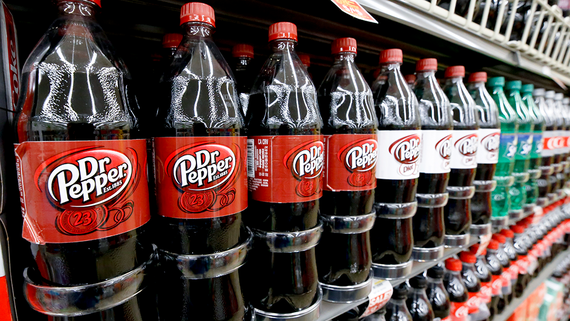Coca-Cola is again trying to take away the Dr. Pepper brand
[ad_1]

On February 28, 2023, the Chamber of Patent Disputes will consider applications from Foodway, which requests to remove protection from trademarks (TK) associated with Dr. Pepper carbonated drink. Information about this is published on the website of Rospatent.
Also on March 14, the Intellectual Property Court will consider Foodway’s claim against European Refreshments Unlimited Company, which is part of the international Coca-Cola Corporation and owns the rights to Dr. Pepper trademarks.
Foodway specializes in the distribution of various soft drinks. In addition, the company produces energy drink Powercell. According to Kontur.Focus, in 2021 the company’s revenue grew by 57% to RUB 155.7 million, net profit amounted to RUB 1.1 million.
Foodway director Nikolai Komarevtsev says that Dr. Pepper “has not been produced in Russia for many years.” In 2015 RBC wrote that the drink was discontinued here in the late 1990s. At the same time, the level of sales was estimated at about 4 million liters per year. There is no fresh data on the volume of Dr.Pepper sales.
Legal protection of trademarks is terminated if products under them are not produced within 3 years, says Komarevtsev. According to him, earlier Foodway sent a proposal to the European Refreshments Unlimited Company to give up trademark rights. [Dr.Pepper]or conclude an alienation agreement, but did not receive a response.
European Refreshments is trying to keep the trademark, while not producing the drink itself in Russia, suggests Komarevtsev. He points out that over 12 years, 5 legal entities have changed as the copyright holder of the Dr. Pepper brand so that trademark protection is not removed. Foodway is interested and has the opportunity to produce the drink itself, Komarentsev assures. The company is already producing Powercell under a contract at the facilities of another company, and is also working on opening its own production.
If the Dr. Pepper trademarks have not really been used in Russia for three years, then their legal protection should be terminated, says Ruslan Gafurov, head of the dispute resolution practice at Nevsky IP Law. But it is important to understand that “use” under civil law is far from only the production of goods on the territory of Russia. First of all, this is a sale to distributors and end users. If the right holder authorized the sale of Dr. Pepper drinks even without transferring the rights to the brand, but under his control, then this will also indicate the use of the trademark and be interpreted in favor of the defendant, Gafurov believes.
A Vedomosti source in one of the non-alcoholic beverage manufacturers says that this story is unpromising from a business point of view. In his opinion, even if the company succeeds in obtaining the right to the brand through the court, it will not be able to repeat the taste of the drink, since the concentrates of the departed brands are mostly imported. So consumers will continue to choose imported drink, the source said.
If we are talking about how to get the rights to the brand, and then try to sell it back to the current owners after the stabilization of the situation in the country, then this is also unlikely to succeed, the source of Vedomosti believes. Upon return, the companies will be able to regain their rights through legal procedures, since they will be able to prove that they owned it long before the Russian company, he said.
There have already been attempts to remove protection from Dr. Pepper trademarks on the grounds that the copyright holder does not produce this drink in Russia. In 2014, Sarva Trade House filed a similar lawsuit against Atlantic Industries, which at that time owned the rights and was also part of Coca-Cola. The Intellectual Property Court satisfied only the requirements for the removal of protection from the trademark for the class of goods “Mineral waters, fruit juices, syrups and other compositions for the manufacture of beverages”. But the protection of trademarks for the production of carbonated drinks and beer remained intact.
[ad_2]
Source link





